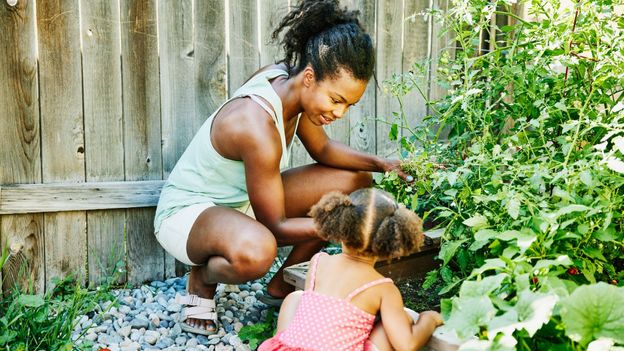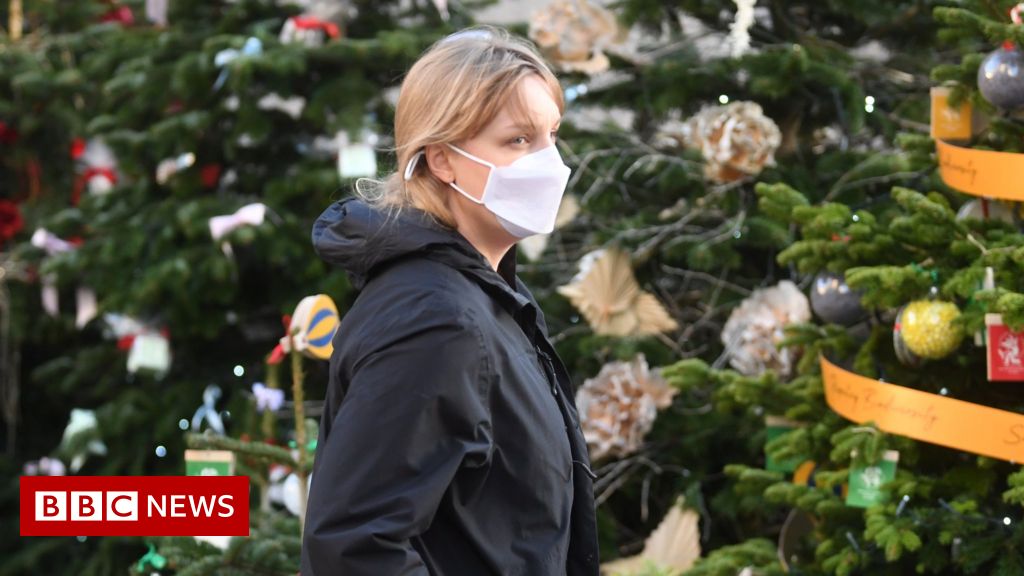 More women without children are actively embracing the role of aunt.Experts say it’s time we recognised aunthood for the rewarding, beneficial or even transgressive role it can be.W When Caroline was growing up, she pictured herself ending up surrounded by children.Now in her 50s, that is exactly how her life has turned out, except not in quite the way she imagined.
More women without children are actively embracing the role of aunt.Experts say it’s time we recognised aunthood for the rewarding, beneficial or even transgressive role it can be.W When Caroline was growing up, she pictured herself ending up surrounded by children.Now in her 50s, that is exactly how her life has turned out, except not in quite the way she imagined.
While she was “never in a position that it made sense” to have children herself, Caroline is a proud and very involved aunt to eight nephews and nieces.
“I sometimes describe it as my brothers have reproduced very successfully on my behalf,” jokes Caroline, a forensic psychologist who lives in Shoreham-by-Sea in southern England.“I’ve got all these lovely kids around who I really enjoy spending time with, and I haven’t had to give birth or have sleepless nights.” Caroline, whose surname is being withheld to protect the children’s privacy, relishes the time she spends with her nieces and nephews, and feels she has a tangible connection to the next generation through them.
For her, aunthood isn’t a runner-up prize, but instead “it feels like a total bonus”.She sees her embrace of the role as pushback against the “fierce” promotion of motherhood, and wishes more women were aware aunthood can be “a totally valid choice” instead.
The aunt without children has always been an object of fascination in culture and literature.Whether the nurturing aunt who takes on an orphan like Peter ‘Spiderman’ Parker’s Aunt May; the embittered Aunt Lydia of the Handmaid’s Tale; or the worldly eccentric like Aunt Augusta in Graham Greene’s Travels with my Aunt, the aunt has always illustrated a sort of ‘other’.
Many portrayals have tended to position aunthood as a second-best option to motherhood, or a cautionary tale about women who operate outside the mainstream expectation of what women ‘should’ be.
Patricia Sotirin, professor of communication at Michigan Technological University, US, says it “speaks to the paucity of our language” that we don’t really have a meaningful way of describing a woman who makes a positive choice to pursue aunthood over motherhood.Sotirin, who has co-written two books about aunts in culture and society, argues aunts still “don’t get the respect and recognition that they deserve for their importance in our lives”.
As an adoring aunt without children myself, I’ve often found myself wondering quite where I fit in, in a culture where motherhood is seen as a marker of adulthood.As increasing numbers of women are not, for whatever reasons, having their own children, experts say it’s time we looked again at the role that aunts play, and recognise aunthood for the rewarding, socially beneficial and even transgressive role it can be.
‘No scripts, no baselines’
It’s no secret the developed world is going through a demographic shift, which is forcing society to rethink traditional expectations of family.Growing numbers of women are exiting their child-bearing years without having children.
In the UK in 2019, 49% of women born in 1989 reached 30 without having children .In the US in 2018, more than one in seven women between 40 and 44 had not had a child and recent Pew Research Center data showed rising numbers of Americans aged 18 to 49 expect never to do so .
It almost feels like we ought to be promoting this a bit more for women as a really positive choice – Caroline Yet, recognition of these societal changes lags behind; policies, media and traditions still centre around the nuclear family .
Sociologists Vanessa May at the University of Manchester, and Kinneret Lahad at the University of Tel Aviv, say this also means the role aunts – and indeed uncles – play in society and families has generally been overlooked in academic research.Socially, the role has been left largely undefined.Unlike the “strict roles and strict expectations” imposed on mothers, there are “no scripts and no baselines” for aunts to follow, says Lahad.So, while the role may vary hugely across cultures, aunts are largely free to define their own familial relationships and responsibilities.
When Lahad and May began researching how contemporary aunts navigate their very nebulous and complicated role in families and society, they found there was very little available data.One good resource, however, was advice letters written to the website Savvy Auntie, which bills itself as “the first community for aunts”.The website is run by New York-based author, marketer and entrepreneur Melanie Notkin, who in 2008 launched a bold attempt to redefine the contemporary aunt.
Notkin, now 52, says as she waited to have children who never arrived, she found that her nephews and nieces had become “the centre of my life”.And it wasn’t just her; increasingly, her female friends weren’t having children.
Nevertheless when they all met up, conversation was often dominated by “talking about our nieces and nephews”.She then started looking into how professional women without children were being depicted in advertising and the media.On the rare occasions they were represented, she realised, “it’s often in a stereotypical way that’s not necessarily a positive reflection of these women”, citing movie tropes like the cold career woman or the irresponsible party girl.
“I felt strongly that it was time that we collectively began to understand this generation of women that are often not even recognised as a cohort,” she says.
As a marketer, Notkin seized on the business potential of this realisation, launching her own rebrand of the aunt role.She came up with the acronym Pank: Professional Aunt No Kids.She felt this described the well-educated, high-earning professional women she knew who, through choice or circumstance, did not see themselves becoming mothers, but nevertheless adored the children of siblings or friends, and were more than ready to share their money and time with them.
Notkin’s early work focused on Panks as consumers; she subsequently turned her Pank concept into a brand, wrote two books and launched her website, with an advice forum for aunts along with gift reviews, news and guides for how to spend “qualauntie time” with children.But what started for her as a commercial move began to take on deeper significance as she realised putting an empowering twist on the aunt-without-children role was deeply affecting for many women.
“Did I realise how deep it would go and how sort of self-affirming it would be for so many women? No,” she says.
Through the interactions she had on her website, Notkin found that re-branding the disparaging concept of the “childless spinster” as a celebratory Pank enabled women to “recognise the role that they play as having meaning”.She recalls a woman who wrote to her to say she had been struggling with infertility and with deep envy for her sibling, who had a child.”She said, ‘I want you to know that because of your work, I was able to see my role differently.You made me see that I may not have a child now… but I play a valuable maternal role.”
More ways to live?
While Notkin’s website provided Lahad and May with ample material for their research, they feel the Pank concept is just one part of the puzzle when it comes to creating greater recognition of the emotional, financial and social role aunts play – something that will become more pressing if the trend of more women not having children continues.
Aunts have “responsibilities which are not scripted in the way responsibilities are usually thought about”, says Lahad, which means they can be overlooked when it comes to things like needing to take leave to care for nephews and nieces, or issues around inheritance.
She’d like to see aunthood recognised by policymakers and society as “important, as valuable, as significant, not… just something that you do because you’re bored”.
Sotirin says there are “lots of different ways of ‘doing aunting’” and the fact that there is even discussion and research happening around a long-stereotyped role is a sign of change.She sees today’s explorations of aunthood as part of a broader re-evaluation of the role of women in society.
In fact, she says, because aunts are unencumbered by a defined role or by the social pressures on parents, they have more freedom to “take us off into other directions, show us what else could be”; they can take on a normative maternal role if they choose or they can “liberate us from ideas about family relationships that hold us back, that don’t recognise the realities of how we actually live”.For Sotirin, aunts, whether mothers themselves or not, are “sort of leading the way in terms of opening up not only what women can become, but how families can change and what it means to be part of communities”.
While Caroline acknowledges that for some women, not having children can be hugely painful, she says she would have a “very robust” response if anyone asked her whether she was sad to be “only” an aunt.“I wouldn’t say if someone saw me, my lifestyle, my relationship with the kids that they would feel any sense of pity,” she says.
Instead, her experiences of aunthood – as confidante and cheerleader to her brothers’ children – have made her a firm “advocate for an auntie role”.
She says, “It almost feels like we ought to be promoting this a bit more for women as a really positive choice.”.
